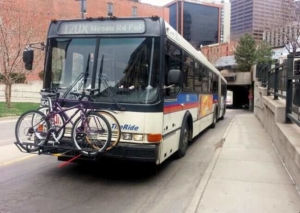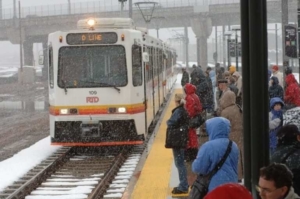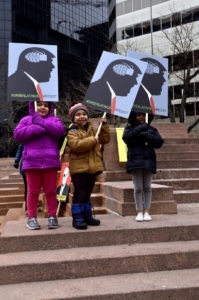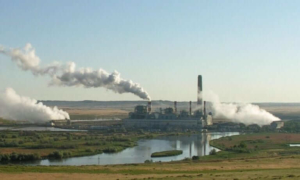News outlets are reporting that President Donald Trump and EPA Administrator Scott Pruitt are expected to begin the process of rolling back national clean car standards in the coming days. These standards are widely supported, save Coloradans money at the gas pump, and reduce smog and toxic pollution.
“Trump and Pruitt are forcing EPA to review and reverse years of clean air policies, including the most effective safeguards to protect public health and cut carbon pollution,” said Noah Long, senior attorney with Natural Resources Defense Council. “Coloradans will be hurt by this rollback unless the state stands up to assert its right to clean air.”
Coloradans have saved $550 million at the pump since the federal government set standards in 2012 to double fuel efficiency for cars and light trucks by 2025. Under these standards, the average Colorado household would have seen $2,700 in savings by 2030—savings that won’t happen with this rollback.
This rollback will increase carbon emissions in Colorado by 3.9 million tons per year, undercutting Governor Hickenlooper’s goals to address our changing climate. Emissions of smog-causing air pollutants from vehicles would increase by about 15 percent, making it harder for places like Colorado’s Front Range to meet federal ozone standards that protect our health. For Coloradans, especially the 343,000 people who are living with asthma, more air pollution means more coughing and wheezing, increased risk of infection, and permanent damage to lung tissue.
“These rollbacks will cancel out nearly all of the climate benefits that will be provided by the governor’s executive order on climate,” said Will Toor, director of transportation programs for the Southwest Energy Efficiency Project. “They will also make it harder for Colorado to meet federal air quality standards and will force consumers to pay hundreds of millions of dollars a year in additional fuel costs. They will leave Colorado residents poorer and breathing dirtier air,”
“The federal clean car standards save Coloradans money every time we fuel up our cars and result in less air pollution every time we drive,” said Danny Katz, director of CoPIRG. “The Trump administration is taking action to make cars more inefficient, which will cost us at the pump and every time we step outside for some fresh air.”
With this federal rollback, states that have adopted their own standards will continue to enjoy the benefits of cheaper car travel and cleaner air, while other states will move backward with dirtier and less efficient vehicles. Conservation groups in Colorado are calling on the governor to take action so Colorado can continue to see the benefits of cleaner cars, even as federal protections are undone.
“Donald Trump and Scott Pruitt’s rollback of the clean car standards endangers our public health and environment and will stifle Colorado’s transition to the clean energy economy,” said Jim Alexee, Director of Sierra Club’s Colorado Chapter. “Governor Hickenlooper has advocated for having the cleanest air in the nation, and now he has an important opportunity to put Colorado in the fast lane to protect our health and climate, and to keep us from wasting money on gas.”
“These rollbacks will be devastating for our climate and our air,” said Sophia Guerrero-Murphy, transportation advocate at Conservation Colorado. “Governor Hickenlooper has committed to cleaning up Colorado’s air pollution, and to achieve that goal we need to see bold action in our state for clean transportation.”
Background:
These national emissions standards have benefited Colorado both in terms of cost savings and better air quality.
- According to the Union of Concerned Scientists, no other federal policy is delivering as much oil savings, consumer benefits, and carbon emission reductions as the 2012 Federal Fuel Economy and Vehicle Emissions Standards.
- Those states that have adopted the Advanced Clean Car standards will continue with their low emission vehicle standards (ten states in total). In other states, substantially dirtier and less efficient vehicles will be allowed to be sold.
- These standards from the EPA pushed car manufacturers to make their cars more fuel efficient. For Colorado, that means the average on-road fuel economy of new cars and trucks in 2025 will be 37 mpg versus an average of 21 mpg from before these went into effect.
- According to AAA, the average cost of owning and operating a vehicle in 2017 is $8,649. Because of the federal emissions standard, the average Colorado household would have seen $2,700 in savings by 2030 from lower gas bills.
- Transportation is the #2 source of greenhouse gas emissions in Colorado, and the highest in the nation.
- The greater Denver area ranked the 6th worst in the country for bad air days in 2015, and we are still in not in alignment with federal air quality safety regulations.

 Through experiences ranging from a Peace Corps volunteer in West Africa to an educator to a practicing attorney to an ultra-distance runner to a marketing professional to an entrepreneur, Peter has forged a unique perspective and a quiver of potent tools to advance his clients’ business, reputation, image, and profitability.
Through experiences ranging from a Peace Corps volunteer in West Africa to an educator to a practicing attorney to an ultra-distance runner to a marketing professional to an entrepreneur, Peter has forged a unique perspective and a quiver of potent tools to advance his clients’ business, reputation, image, and profitability.
 Some people seem to think the funding solution is easy and straightforward, that using existing resources to bond for transportation. But taking a bond (or loan) against our already narrow budget is not free money. Locking hundreds of millions of dollars into bonding without creating a new revenue source merely shifts the problem down the road to future generations. If Colorado is stuck making bond payments during another recession, we would need to cut other critical areas from the budget, which could mean less money for things like schools or health care. The general fund cannot be the only source of funding. Solutions for transportation can include bonding, but it should be done responsibly, with a new source of revenue to pay for it and in a way that does not mortgage our future.
Some people seem to think the funding solution is easy and straightforward, that using existing resources to bond for transportation. But taking a bond (or loan) against our already narrow budget is not free money. Locking hundreds of millions of dollars into bonding without creating a new revenue source merely shifts the problem down the road to future generations. If Colorado is stuck making bond payments during another recession, we would need to cut other critical areas from the budget, which could mean less money for things like schools or health care. The general fund cannot be the only source of funding. Solutions for transportation can include bonding, but it should be done responsibly, with a new source of revenue to pay for it and in a way that does not mortgage our future. Third, we need transportation options because they are good for our economy, public health, and safety. Increasing walkability and bike-ability of neighborhoods boosts
Third, we need transportation options because they are good for our economy, public health, and safety. Increasing walkability and bike-ability of neighborhoods boosts 
 Methane, a potent greenhouse gas, leaks from oil and gas sites across the country, wasting taxpayer dollars and exacerbating climate change. The Bureau of Land Management’s Methane Rule established commonsense standards that require oil and gas companies to deploy readily available, cost-effective measures to reduce methane lost through venting, flaring, and leaks. While the rule itself is still in question, there’s no doubt that Sen. Gardner went against the wishes of most Coloradans and voted to repeal the rule.
Methane, a potent greenhouse gas, leaks from oil and gas sites across the country, wasting taxpayer dollars and exacerbating climate change. The Bureau of Land Management’s Methane Rule established commonsense standards that require oil and gas companies to deploy readily available, cost-effective measures to reduce methane lost through venting, flaring, and leaks. While the rule itself is still in question, there’s no doubt that Sen. Gardner went against the wishes of most Coloradans and voted to repeal the rule.

